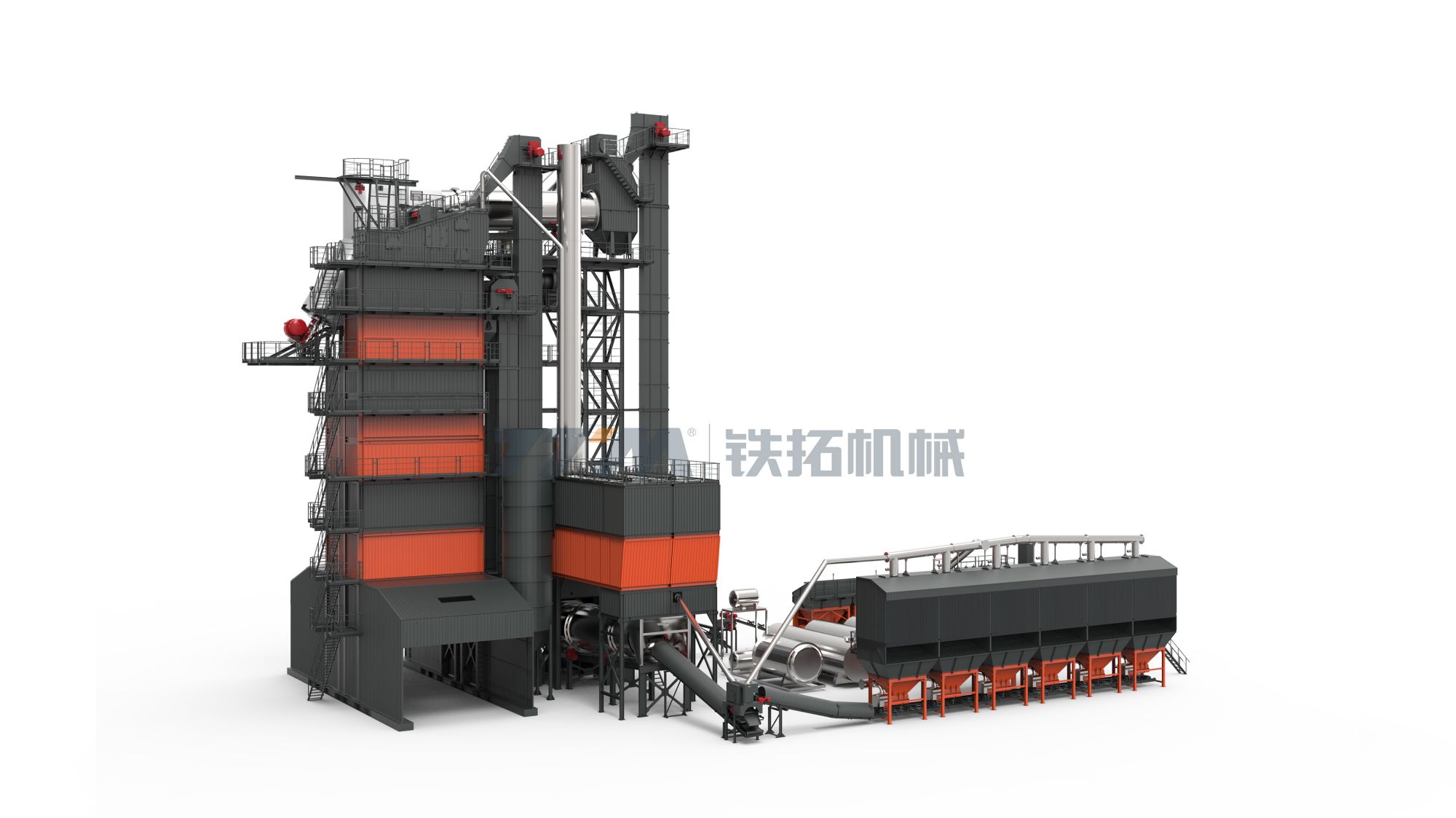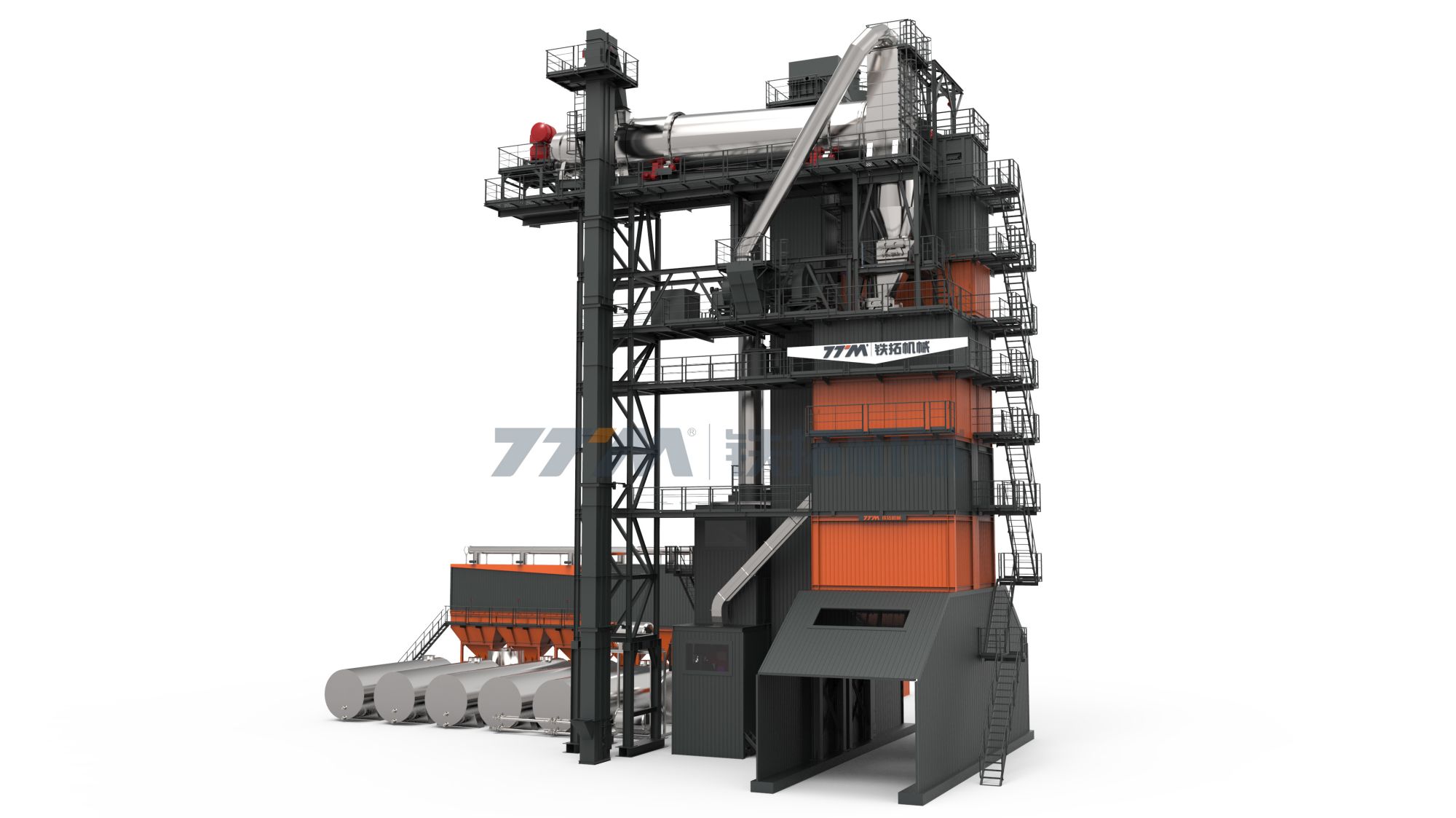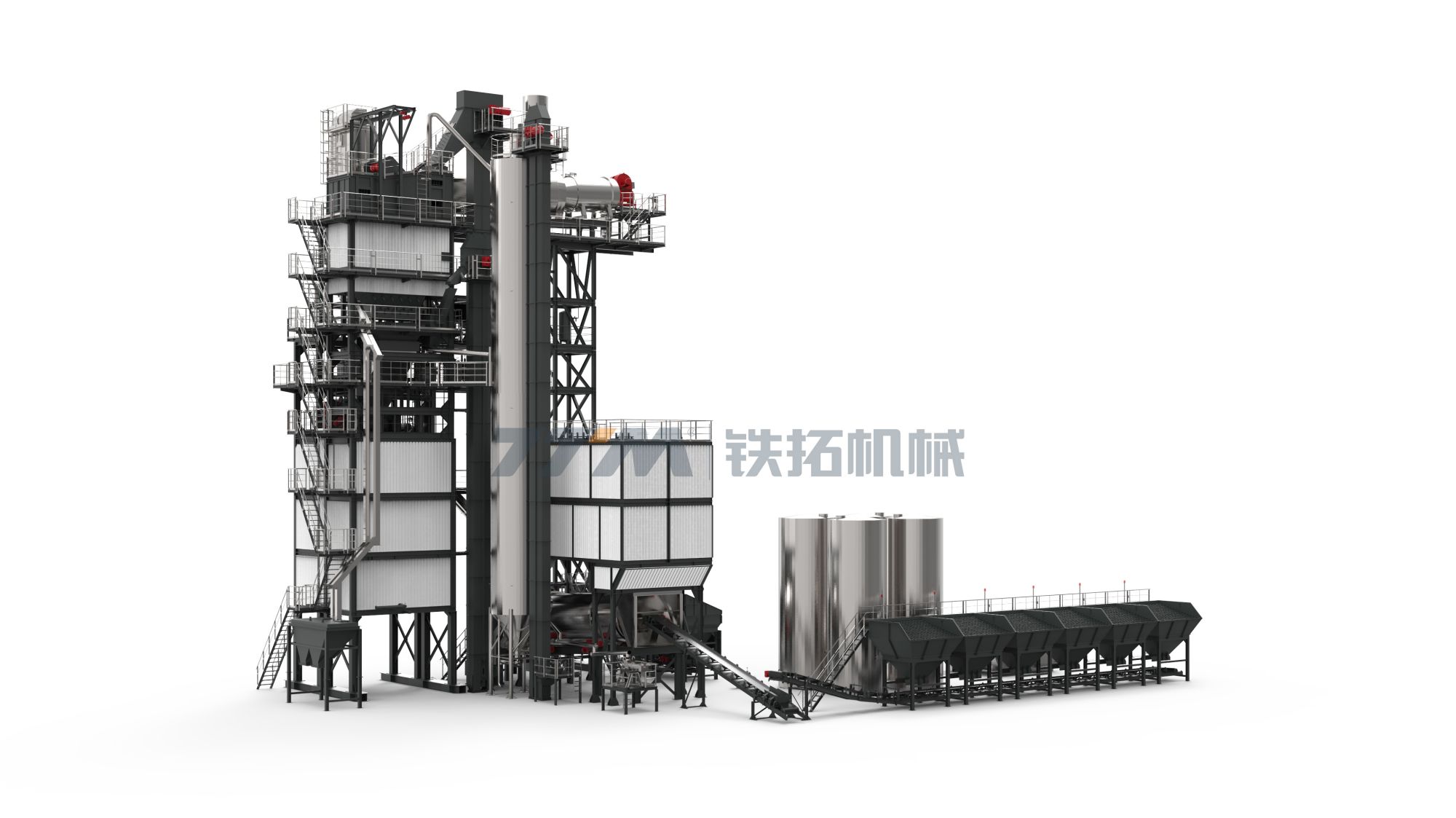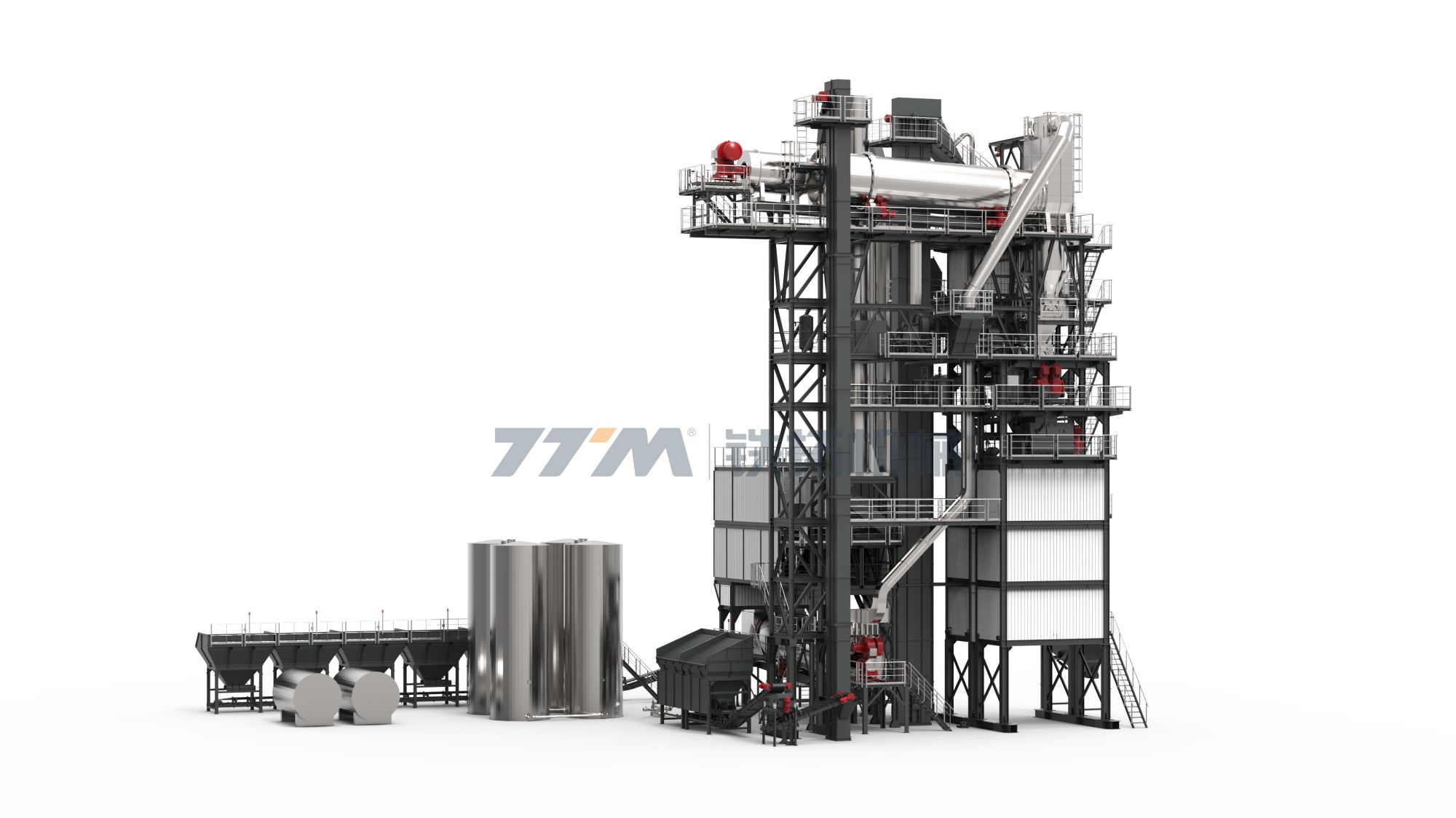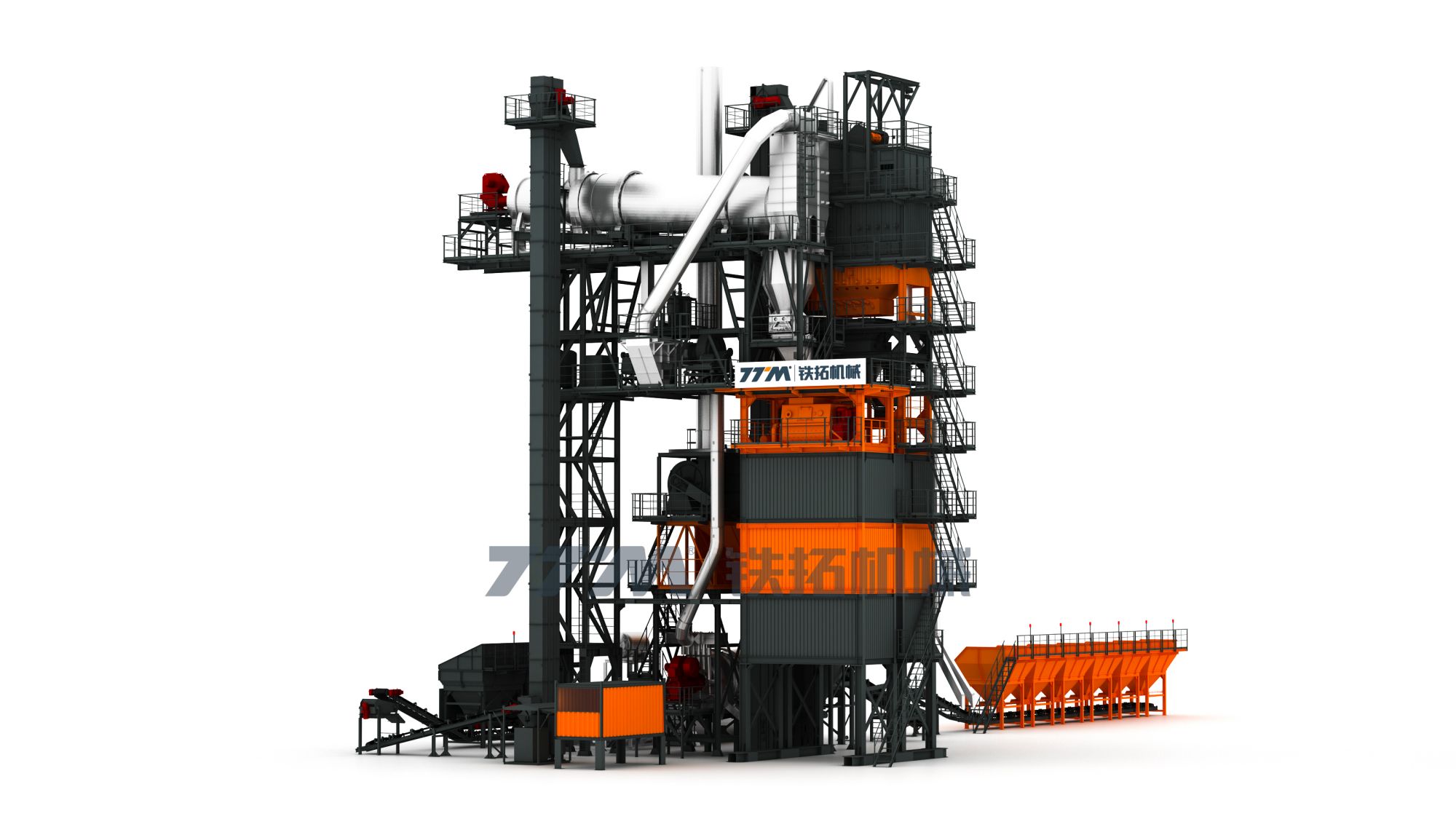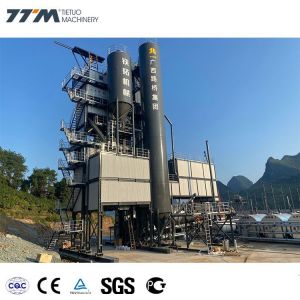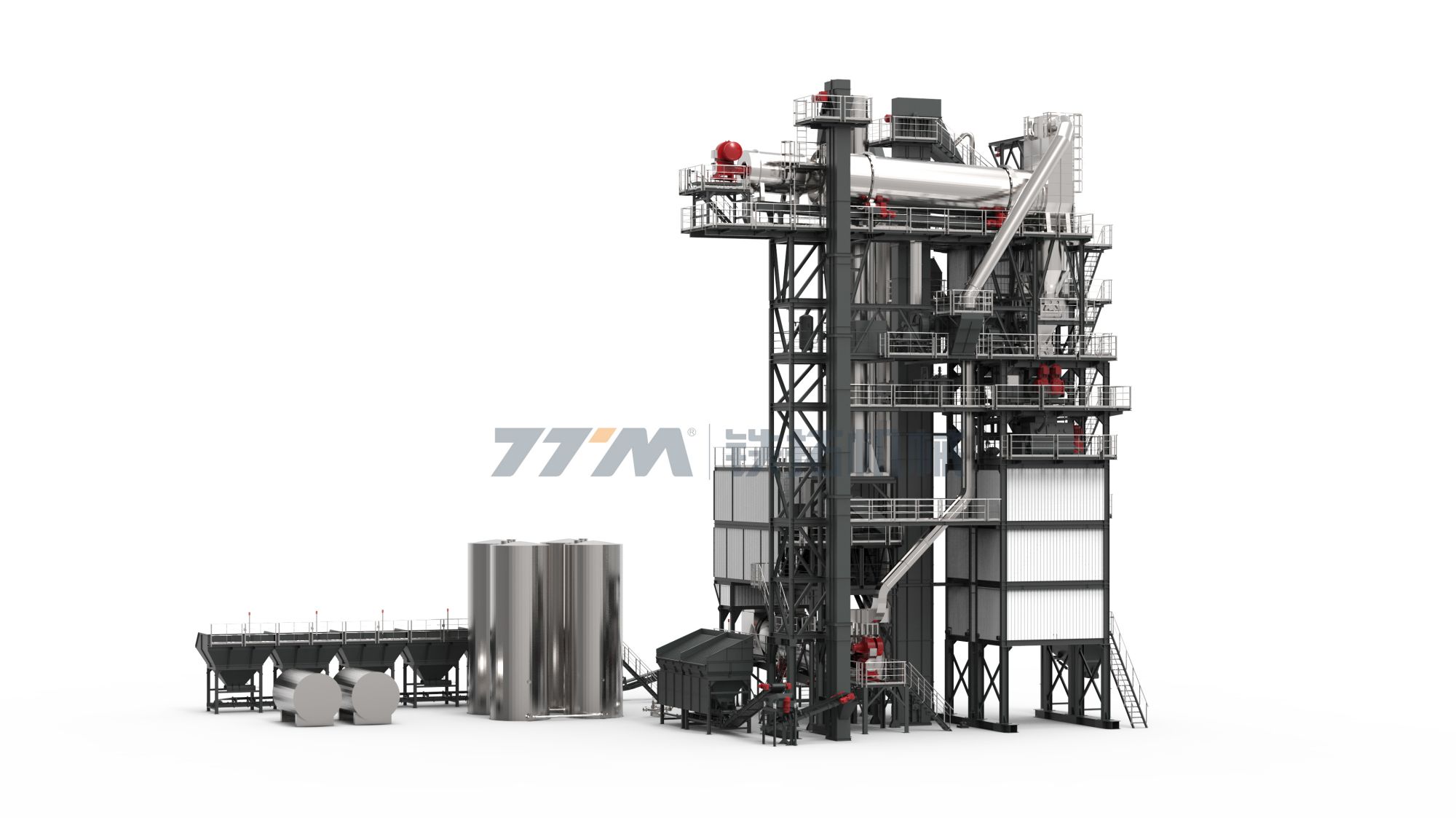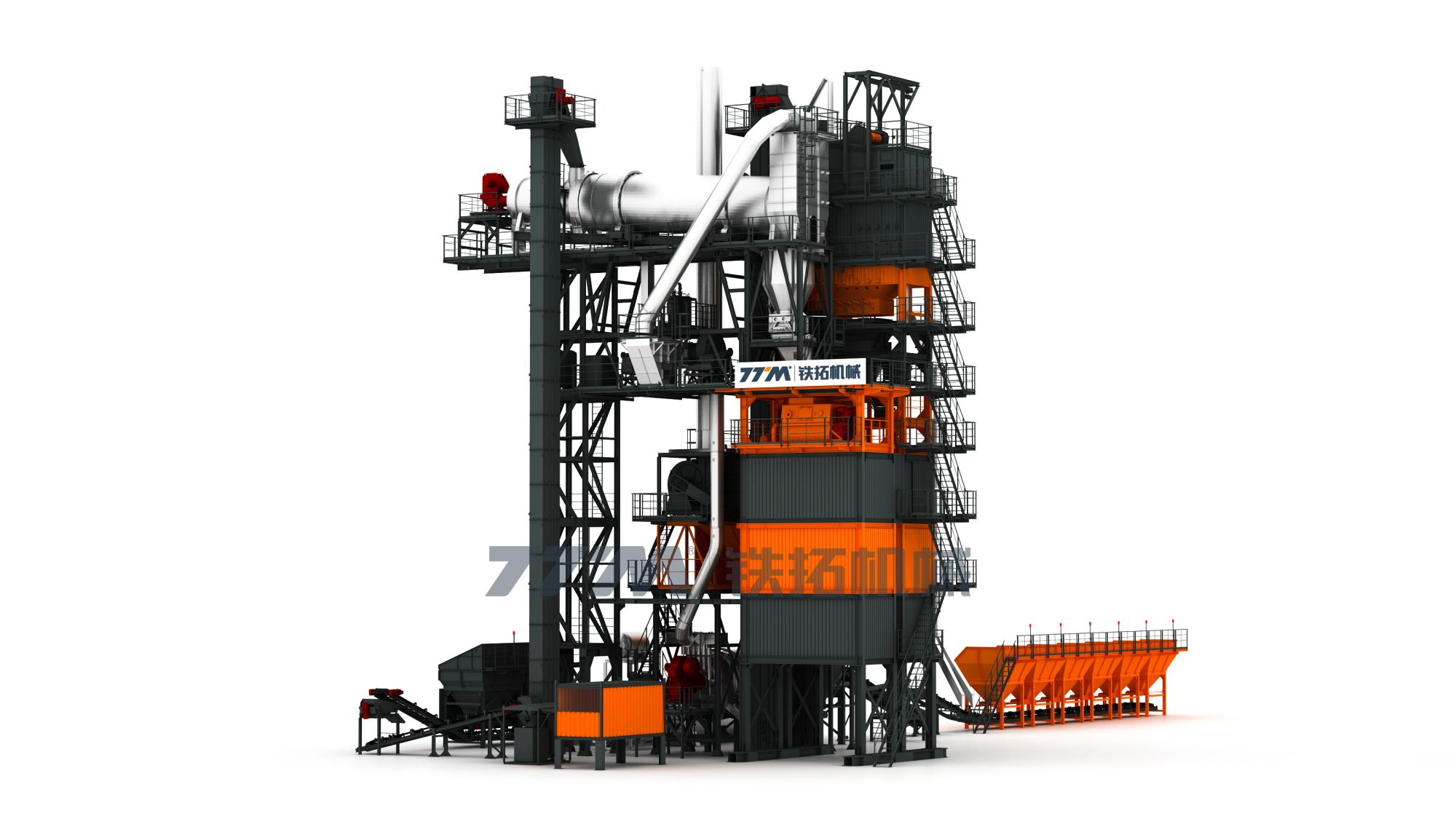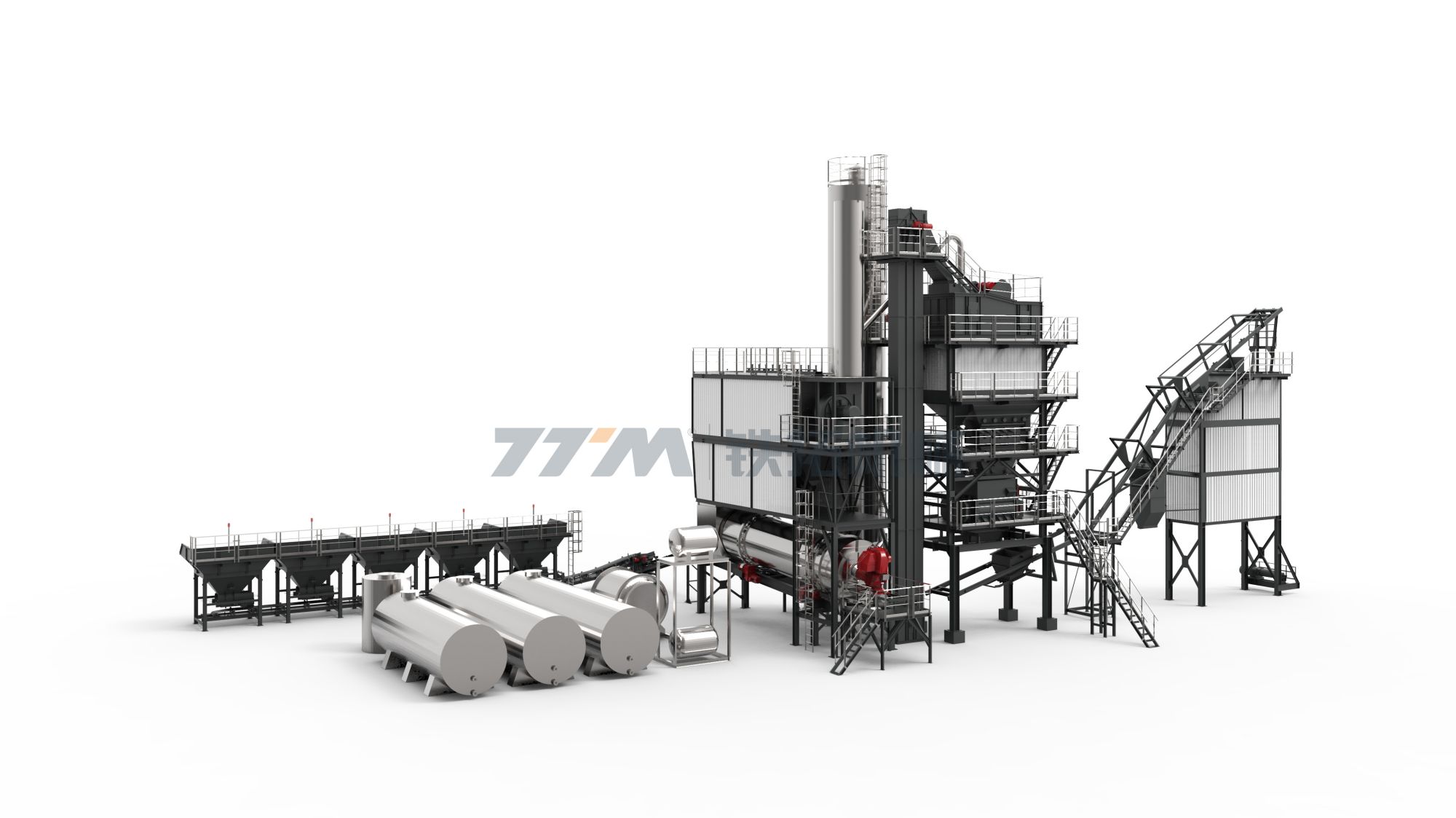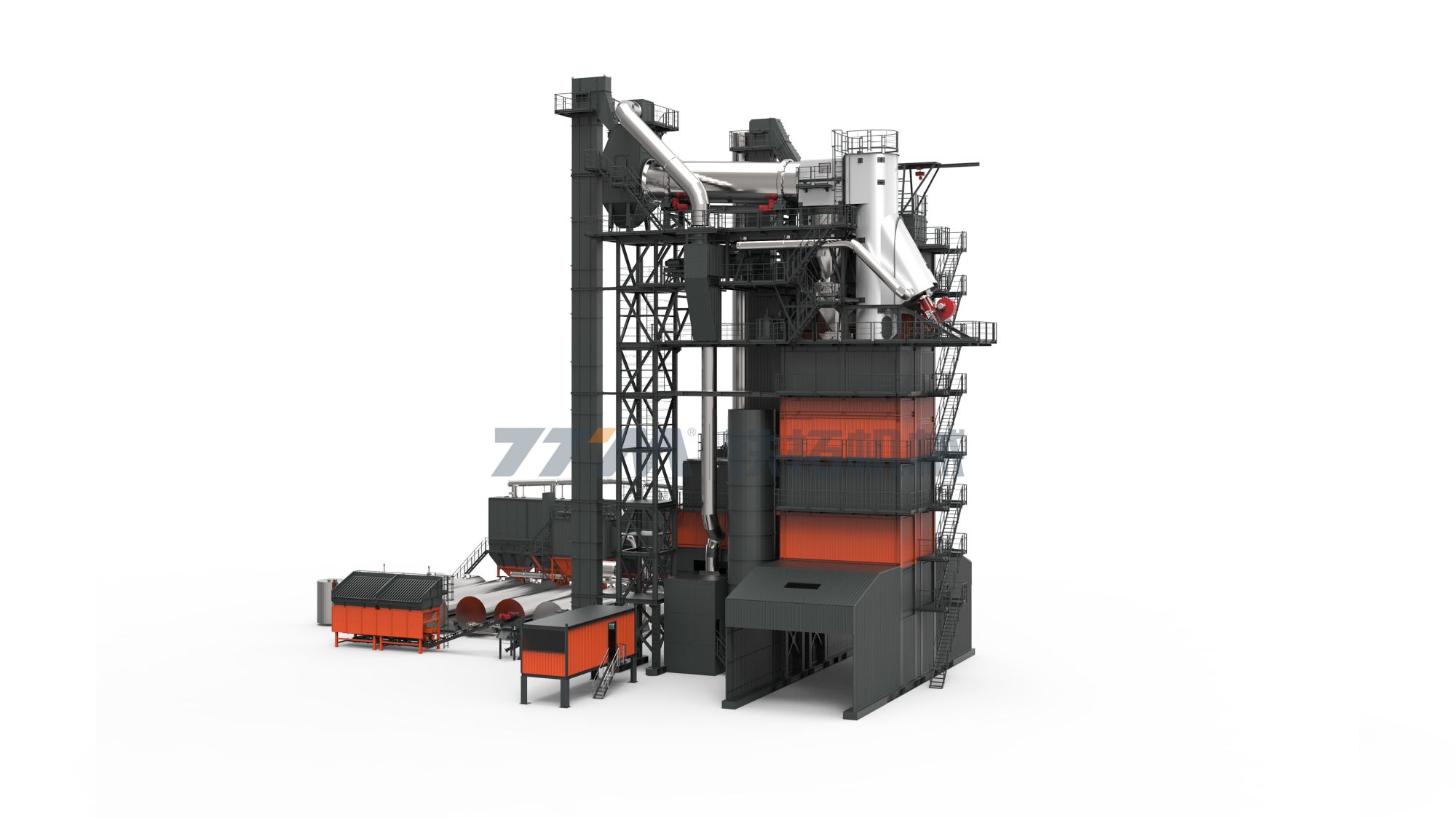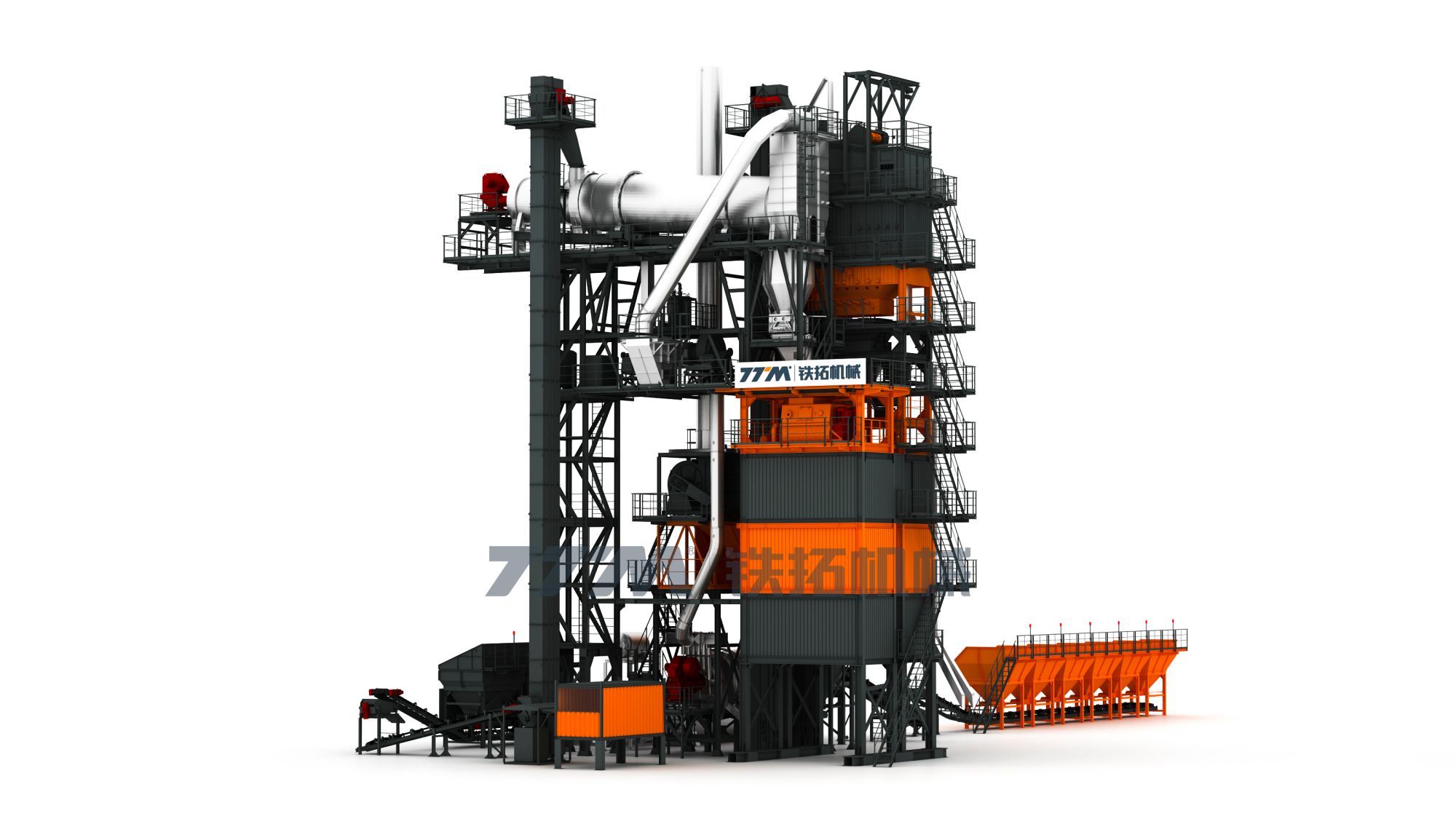The TS4030 RAP Recycling Hot Asphalt Mixing Plant is engineered for high-efficiency and high-capacity asphalt production, emphasizing advanced recycling and environmental sustainability. With its robust design and cutting-edge technology, this plant is ideal for large-scale paving and construction projects, delivering consistent quality and performance.
Key Features:
High Production Capacity:
- Primary Material Production Capacity: 320 t/h
- Reclaimed Material Production Capacity: 240 t/h
- Total Production Capacity: 4400 t/h
Optimal Mixing Ratio:
- Supports up to 60% RAP, facilitating effective recycling of asphalt materials and enhancing both cost efficiency and environmental sustainability.
Efficient Drying System:
- Primary Dryer Drum: GT400
- Diameter: 3 meters
- Length: 12 meters
- Burner Power: 35.5 MW
Advanced Dust Collection:
- Bag Filter Dust Collection Area: 1840 m², ensuring superior dust control and adherence to stringent environmental regulations.
Robust Mixing Drum:
- Capacity: 7500 kg
- Drive Type: Quadruple Reduction Motor Drive for high-performance and reliable mixing, even under the most demanding conditions.
Recycling Capabilities:
- Recycling Dryer Drum: RGTC240
- Diameter: 3 meters
- Length: 12 meters
- Burner Power: 21.3 MW
- Recycling Mixing Drum Capacity: 2000 kg
- Recycling Material Entry: Direct Feed, with the mixing drum positioned directly below the recycling weighing scale for efficient material processing and handling.
Exhaust Gas Treatment:
- Method: Secondary Combustion in the Raw Material Drum, providing effective management of exhaust gases and compliance with emission standards.
Configuration and parameters —
Model | TS1510 | TS2015 | TS3015 | TS3020 | TS4020 | TS4030 | TS5030 |
Primary Material Production Capacity (t/h) | 120 | 160 | 240 | 240 | 320 | 320 | 400 |
Reclaimed Material Production Capacity (t/h) | 80 | 120 | 120 | 160 | 160 | 240 | 240 |
Optimal Mixing Ratio (%) | 50% | 50% | 37.50% | 50% | 40% | 60% | 50% |
Total Production Capacity (t/h) | 1400160 | 2000240 | 2800320 | 2800320 | 3600400 | 4400480 | 4400480 |
Primary Dryer Drum | GT120 | GT160 | GT240 | GT320 | GT320 | GT400 | |
Diameter (m) | 1.95 | 2.25 | 2.5 | 2.7 | 2.7 | 3 | |
Length (m) | 8 | 9 | 10 | 10 | 12 | 12 | |
Burner Power (MW) | 11.8 | 19.7 | 21.3 |
| 27.8 | 35.5 | |
Bag Filter Dust Collection Area (m²) | 650 | 920 | 1200 |
| 1600 | 1840 | 1840 |
Mixing Drum Capacity (kg) | 2000 | 3000 | 4000 | 5500 | 7500 | ||
Mixing Drum Drive Type | Dual Reduction Motor Drive | Quadruple Reduction Motor Drive | |||||
Recycling Dryer Drum | RGT80 | RGT120 | RGT120 | RGT160 |
| RGTC240 |
|
Diameter (m) | 2.25 | 2.5 | 2.5 | ||||
Length (m) | 8 | 10 | 12 | ||||
Burner Power (MW) | 9.8 | 14.8 | 14.8 | 19.7 | 21.3 | ||
Combustion Chamber Diameter × Length | φ1.8*4.2 | φ2*4.2 | φ2.5*11 | ||||
Recycling Temporary Storage Bin Capacity (m²) | 9 | 12 |
| ||||
Recycling Mixing Drum Capacity (kg) | 1000 | 1500 | 1500 | 2000 |
|
|
|
Exhaust Gas Treatment Method | Secondary Combustion in the Raw Material Drum | ||||||
Recycling Material Entry to Mixing Drum | Direct Feed (Mixing Drum Positioned Directly Below the Recycling Weighing Scale, No Chute)” | ||||||
The TS4030 RAP Recycling Hot Asphalt Mixing Plant is designed for high-capacity asphalt production with advanced recycling features, offering reliable performance and environmental compliance. Its powerful system and efficient operation make it a top choice for large-scale asphalt production facilities seeking to optimize their processes and reduce environmental impact.


